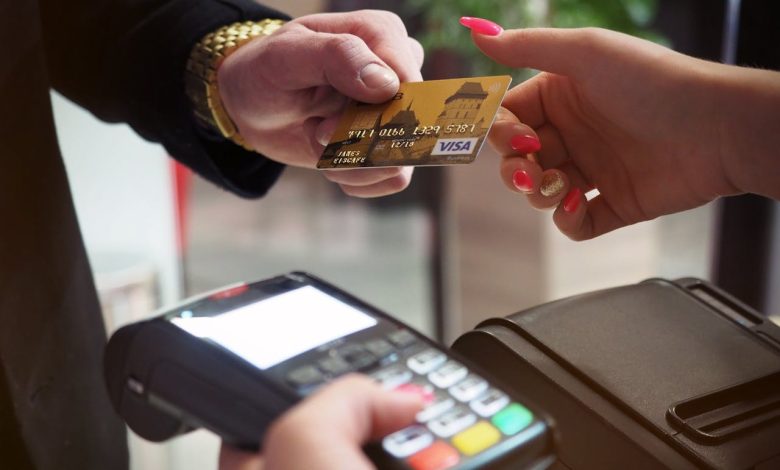Credit Card Advice for First-Time Applicants

Applying for your first credit card is an exciting milestone, but it can also feel overwhelming. With so many options, terms, and potential pitfalls, it’s important to go into the process fully informed. A credit card can be a useful financial tool when managed properly, helping you build credit, manage expenses, and access rewards. However, without careful use, it can also lead to debt and financial challenges. Here’s a guide for first-time credit card applicants on how to choose the right card and use it responsibly.
1. Understand How Credit Cards Work
Before applying for a credit card, it’s crucial to understand the basics of how they work:
- Credit limit: This is the maximum amount you can spend using the card. First-time cardholders typically have lower limits, which may increase as you demonstrate responsible use.
- Interest rates: If you carry a balance on your card (meaning you don’t pay off your full statement balance each month), you’ll be charged interest. This is typically shown as an Annual Percentage Rate (APR). Avoid carrying a balance whenever possible to avoid these costs.
- Minimum payments: Each month, you’ll receive a statement showing how much you owe. While you’re only required to pay the minimum amount due, paying off the full balance each month helps you avoid interest charges and build good credit habits.
2. Check Your Credit Score
Your credit score is a key factor in determining whether you’ll be approved for a credit card and what terms you’ll be offered. First-time applicants often have limited or no credit history, which can make it harder to qualify for premium cards with better perks.
You can check your credit score for free through various online platforms or directly through your bank. If you have no credit history or a low score, consider starting with a secured credit card (discussed in the next section). Building your credit over time will help you qualify for better cards with more rewards and lower interest rates.
3. Consider a Secured Credit Card
If you’re a first-time applicant with no credit history or poor credit, you may have difficulty getting approved for a traditional unsecured credit card. In this case, a secured credit card can be a great option.
A secured credit card requires a refundable deposit, which acts as your credit limit. For example, if you deposit $500, that’s your credit limit. This deposit protects the card issuer in case you fail to make payments. After consistently using a secured card for a year or so, you may be able to transition to an unsecured card and get your deposit back.
Secured cards are designed to help people build or rebuild their credit, and many report your payment history to the credit bureaus. Make sure to choose a card that offers this feature, as it’s critical for building your credit score.
4. Research Different Types of Cards
There are many different types of credit cards, each offering unique features and benefits. First-time applicants should carefully consider their spending habits and financial goals before choosing a card. Here are a few common types:
- Student credit cards: These are designed for college students who may not have an extensive credit history. They often come with lower credit limits and sometimes have lower interest rates.
- Rewards cards: These offer points, miles, or cash back for purchases. While tempting, these cards often have higher interest rates, so they’re best suited for people who can consistently pay off their balance in full each month.
- Secured credit cards: As mentioned earlier, these are great for those with no or low credit. They help build credit while minimizing the risk for card issuers.
- Low-interest or balance transfer cards: If you think you might carry a balance from month to month, consider cards with low-interest rates. Some cards also offer introductory 0% APR on balance transfers, which can help if you need to consolidate debt.
5. Understand Fees and Terms
When applying for a credit card, it’s essential to read the fine print. Credit cards often come with various fees and terms that can impact your overall experience. Some common fees include:
- Annual fee: Many credit cards, especially rewards cards, charge an annual fee. Make sure the benefits outweigh this cost before applying.
- Late payment fees: Missing a payment can result in a hefty fee and negatively impact your credit score.
- Foreign transaction fees: If you plan to use your credit card while traveling internationally, check whether the card charges foreign transaction fees, which can add up.
It’s also important to understand the card’s APR and whether it has an introductory 0% APR period. While it’s ideal to pay off your balance every month, knowing your interest rate is crucial if you do carry a balance.
6. Use Your Credit Card Responsibly
Once you’ve been approved for your first credit card, the key to long-term financial success is using it responsibly. Here are some tips:
- Pay off the balance in full each month: Avoid carrying a balance from month to month to prevent accumulating interest charges.
- Keep your utilization low: Your credit utilization ratio (the amount of credit you use relative to your limit) plays a significant role in your credit score. Aim to keep your utilization below 30% to maintain a healthy score.
- Monitor your spending: It’s easy to overspend with a credit card, so set a budget and track your expenses to ensure you don’t fall into debt.
- Set up automatic payments: To avoid late payments, which can hurt your credit score, consider setting up automatic payments for at least the minimum amount due.
7. Monitor Your Credit Score and Report
Building a good credit score takes time, but it’s essential for your future financial health. Regularly check your credit score to monitor your progress, and review your credit report for any errors or fraudulent activity. You can get a free credit report annually from each of the three major credit bureaus (Equifax, Experian, and TransUnion).
Conclusion
Applying for your first credit card is an important step in establishing your financial independence, but it comes with responsibilities. By understanding how credit cards work, choosing the right type of card, and using it responsibly, you can build a solid credit history and set yourself up for future financial success. Remember, the key to using a credit card wisely is to spend within your means, pay off your balance on time, and monitor your credit regularly.



